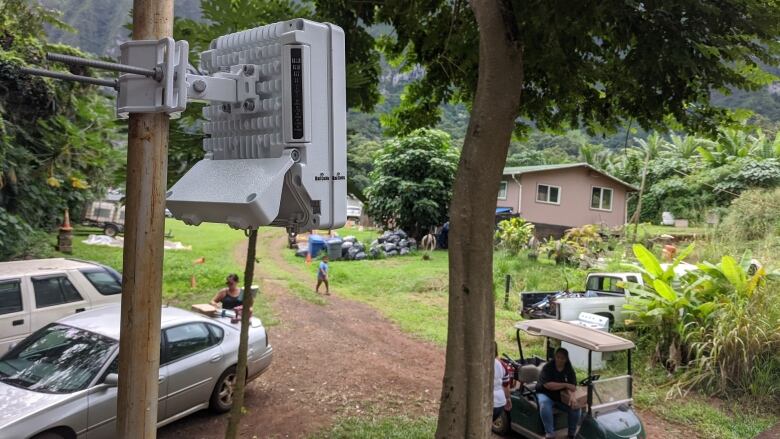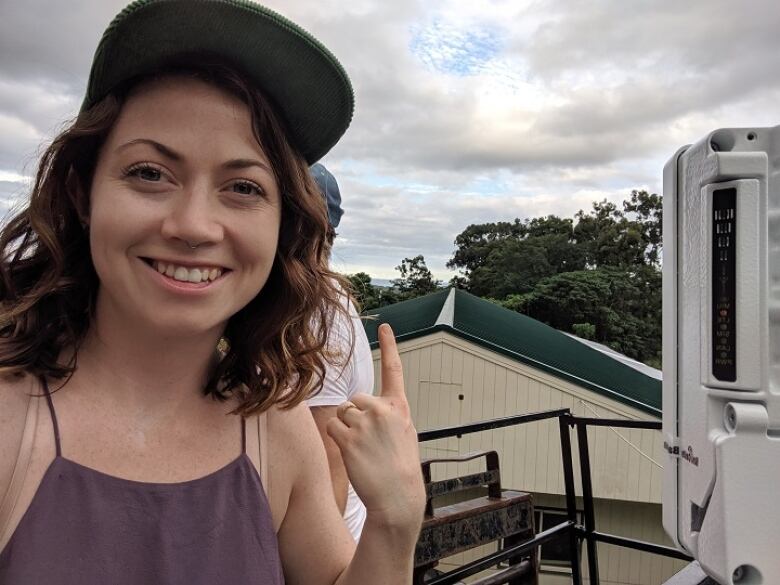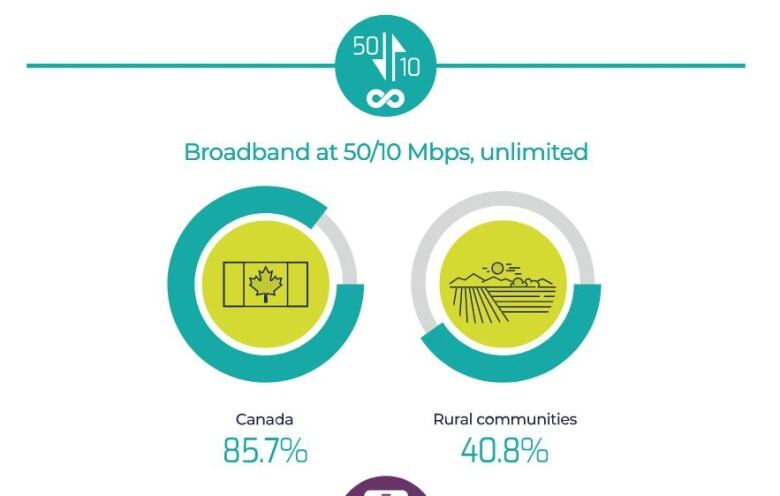Calgary grad student helps bring internet to remote Hawaiian community
'Even here in Canada we've got a lot of people that aren't connected'

A University of Calgary grad student recently helpedset up internetservice in an isolated communityin Hawaii, and says the experience taught her about the need for theinternet in remote areas everywhere, including Alberta.
Katy Anderson, a grad studentin the communication and media studies program, attended theIndigenous Connectivity Summit 2019. It was hosted by the Internet Societyearlier this month in Hilo, Hawaii.
There, they discussed how more Indigenous communities need internet connection as well as ways they can work collaboratively to make it happen.
"We went to talk about projects we were working on anddifferent internet challenges that people across North America are facing," Anderson told theCalgary Eyeopeneron Wednesday.
After the conference, Anderson and others travelled to the the island of Oahuwith members of a community of Hawaiians who were living without broadband internet.
"They wanted to set up their own internet network. They had a bit of cellphone service there, but not much else," said Anderson, who is studying telecommunications policy and communityInternet networks.

"It was amazingly easy. I'd never done it before. But we set up with a group of probably 50 of us and maybe 30 community members, and within a day we learned how to set up a network."
Andersonsays that while it may be hard toimagine not having internet access in today's society, it's a reality for many. Something as simple as kids learning about the world or families connecting to health services can be a difficult process without online access, she says.
"It's not just about Netflix but about learning how to set up their own governance structure," she said. "So it's just really challenging to having to go away from your community every time you want to connect to the wider world."
In order to set up a network, Anderson says, the group useda strand of fibrefrom a Hawaiian telecom, and once that was achieved, the process was similar to setting up amodem at home.

"We wired it up, climbed on roofs and then used LTE spectrum so just normal radio airwaves and wired it into 10 different homes," she said.
The entire experience took the group 2days. Anderson adds that the process wasn't about teaching but about learning beside those who livethere, so that they're able to maintain and grow the network themselves.
"They can be totally self-sufficient now. It was an amazing process to see just how easy it is to actually set up your own network," she said.
Internet in Canada
Anderson notes that there are a lot of communities in Canada and Alberta that also struggle with lack of internet access.
"Just 85 per cent of Canadians have access to what we call high-speed internet. And if you look at rural communities, it's only 40 per cent," said Anderson, who gathered her stats from aCRTC Communication Monitoring Report.
"So even here in Canada we've got a lot of people that aren't connected."

She says that even in urban communities, they've found that thosein lower-income brackets have to choose between having mobile internet or home internet.
"We see that some prices are going up, especially for home internet, and our need for data is really increasing," she said.
Anderson says she plans to bring internet to more areas specifically Indigenous communities in Alberta.
"I think it'd be a really great project to go and learn with communities," she said. "So rather than just, like, going there and setting it up, but for them to learn alongside people."
With files from theCalgary Eyeopener.












_(720p).jpg)


 OFFICIAL HD MUSIC VIDEO.jpg)
.jpg)



























































































